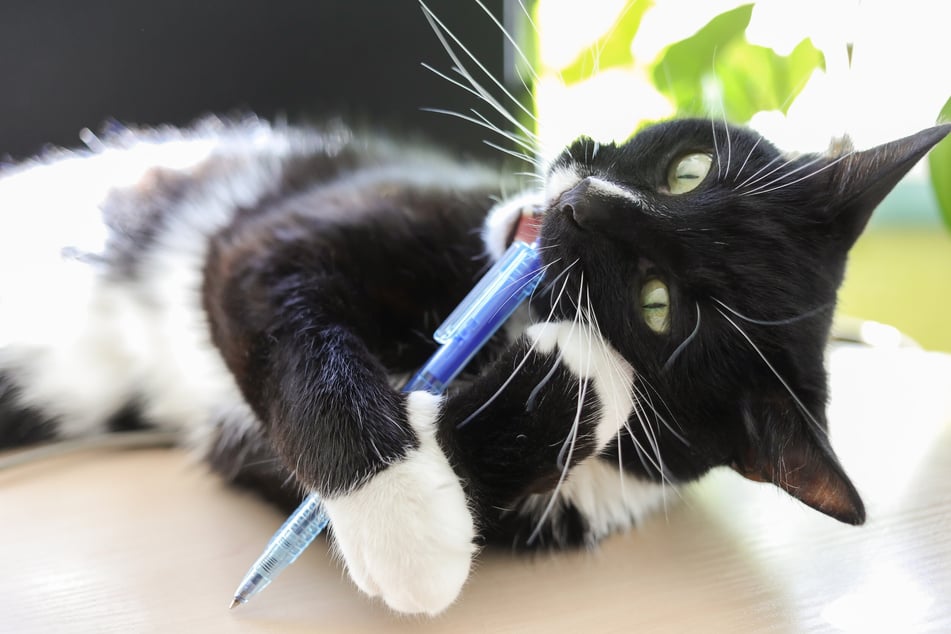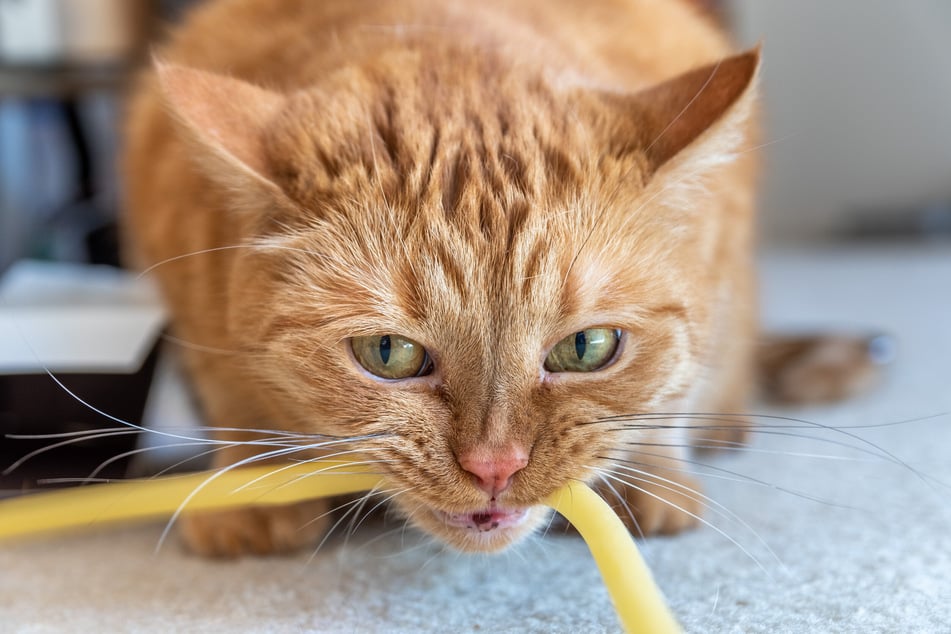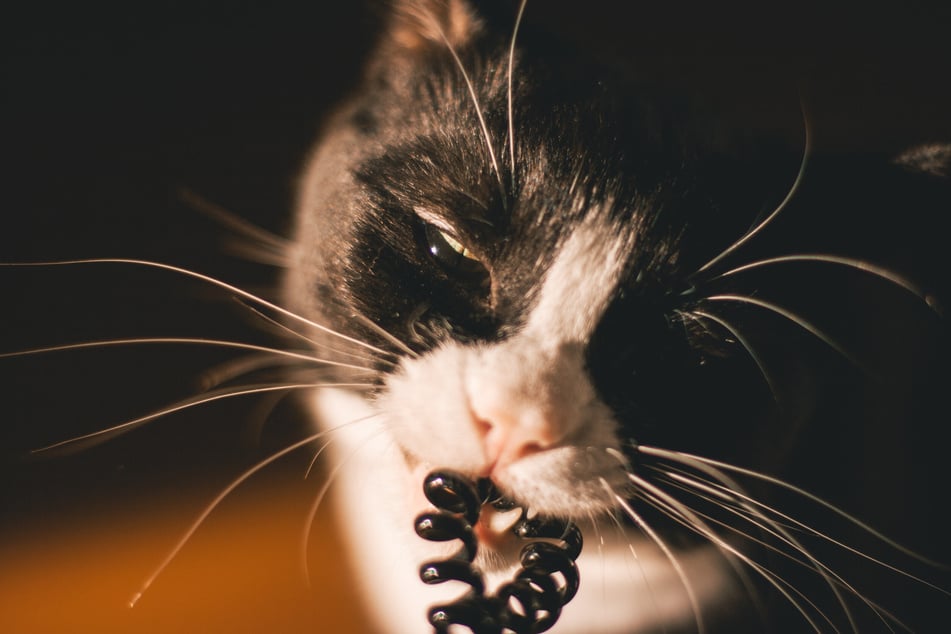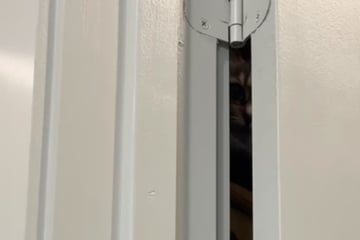Help, my cat is eating plastic! What the behavior means and how to stop it
Does your cat like to eat or chew on plastic? If they do, then keep reading! This behavior should be prevented as a matter of urgency.

Many cat owners are familiar with it: time and again, you catch a cat chewing up plastic bags, plastic film, and other packaging.
But cats licking and chewing on plastic objects can be very dangerous for the animal.
Nibbling on foreign objects can lead to choking, internal injuries, constipation, and intestinal obstruction.
This can result in vomiting, signs of pain, and a general deterioration in the cat's health and well-being.
Read on to learn about why cats might eat plastic and what you can do to stop it.
Why do cats eat plastic?
If a cat chews on plastic or other foreign objects and even eats some of them, this is not normal behavior. There are various reasons for this quirk.
Nutrient deficiency symptom
If you repeatedly catch your cat eating plastic, it may be due to a vitamin deficiency, as it is trying to compensate with this behavioral disorder.
In the case of frequent plastic consumption, it is advisable to visit a veterinarian, where you can check the nutrient balance and find out the cause of the cat's behavior.
Pica syndrome

A common reason for the atypical behavior is an eating disorder known as pica, in which objects that are not food are consumed. In addition to plastic, this also includes paper, wool, or stones, for example.
The cause of this behavioral disorder is not entirely clear, as both genetic and environmental factors may play a role.
Boredom
Cats can also nibble on plastic out of boredom and curiosity. The crackling of packaging and foil is also inviting.
The smell and taste of plastic – especially plasticizers, which often contain animal fatty acids – can also attract cats.
What to do if your cat eats plastic?
How to help a cat if it has eaten plastic depends on what and how much has been eaten.
Small and soft pieces
If the pieces are small and soft, cat owners should keep an eye on their kitty and the litter box. Small pieces are usually excreted in the feces. You should also look out for any noticeable behaviour that could indicate discomfort or injury.
Larger and harder pieces
Large, hard, or sharp objects should be taken to a veterinary practice because they can cause serious internal injuries. A doctor can clarify the cause, a possible underlying disease, and injuries, as well as treat them.
To prevent such emergency situations from occurring in the first place, you should try your best to prevent a cat from eating plastic.
Prevent chewing and eating plastic

Keep out of reach
To prevent cats from eating plastic, you should make such materials and foreign objects as inaccessible as possible, and also close garbage cans tightly.
Alternatives for cats
You can also redirect chewing behavior by offering your cat alternatives for biting and chewing – for example, teething toys, chew sticks, or catnip. It can also help to switch from wet to dry food.
Balanced diet
It goes without saying that cats must be kept in a species-appropriate environment and fed a balanced diet so that they do not develop behavioral problems. Stress should also be avoided as a matter of urgency.
Enough entertainment for cats
Proper pet ownership also includes playing with your cat. If it gets enough attention and is entertained and challenged, it is less inclined to eat inedible foreign objects such as plastic.
Sometimes medication is also used to reduce stress.
Conclusion
A cat will eat plastic if it suffers from so-called pica syndrome, but sometimes also if there is a nutritional deficiency or if it is simply stressed or bored and not fully occupied.
This behavior can often be prevented with the right attitude and food. If a cat has already eaten plastic, a visit to the doctor may be advisable, depending on the behavior and size of the foreign object.
Cover photo: 123RF/senata
